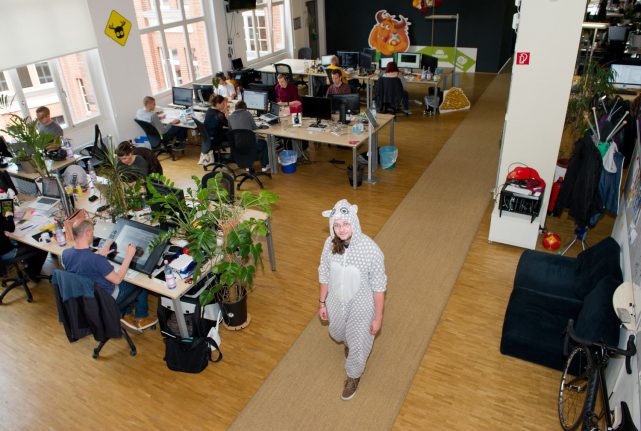The German Chambers of Commerce and Industry (DIHK) reported on Monday that, based on business survey results, they predict there to be half a million new jobs created this year, particularly in the medical field.
“The demand for health care services is increasing due to the demographic changes, and growing health consciousness – additional employment of 130,000 comes as a result,” said DIHK managing director Martin Wansleben in a statement.
But Professor Enzo Weber from the Institute for Employment Research (IAB) said it would be a disappointment if the number of new jobs only reached 500,000, Spiegel reported on Monday. Weber predicts that the number of new jobs with social insurance obligations would be 760,000. He also said he expected the number of positions which will be cut by companies to be very low in 2017.
SEE ALSO: Germany to see record ‘job boom’ in 2017, says report
The DIHK calculates that the number of jobs related to marketing and research created in 2017 will be significant, reaching 130,000 new jobs, specifically at advertising agencies, in market research, and at research and development institutes.
“The education sector is profiting from the higher need for training in connection to digitalization and refugees,” Wansleben added.
“Manufacturing will also again expand greatly. Exports and investments will finally rise again. We calculate 30,000 more new jobs there.”
The construction boom in Germany derived from greater housing and infrastructure needs is also expected to bring the number of related jobs to a new level, with 35,000 more positions.
Still, the DIHK report found that for the first time, more than half of firms see their business development threatened by a shortage of skilled workers. Therefore the number of new jobs will not be as high in all areas as last year.
In the hospitality industry, health care sectors, and for education services, three-quarters of companies reported such shortages. Four in five firms in the civil engineering sector also said they could not find the necessary workers.
“Strengthening the dual education system is therefore particularly important,” said Wansleben.
“In order to boost the employment potential, the compatibility of family and work must furthermore be improved – in particular through child care offers, also for marginal time during the day.”



 Please whitelist us to continue reading.
Please whitelist us to continue reading.